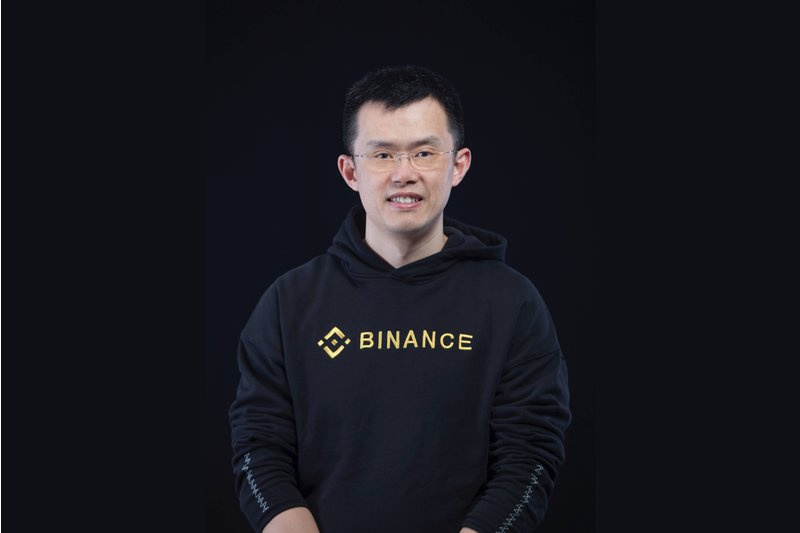《财富》专访赵长鹏:我更喜欢去马耳他开展业务

|
赵长鹏是一位平易近人的加密货币亿万富翁。他担任首席执行官的币安公司(Binance)去年横空出世,一跃成为世界上最大的加密货币交易所,但他本人从不自吹自擂或目空一切。 相反,人称“CZ”的赵长鹏友善而安静,他将精力都放在打造区块链帝国上,后者有可能重塑世界上的诸多金融系统。在接受《财富》杂志采访时,赵长鹏就币安和加密货币的未来阐述了他的几大思路。 赵长鹏曾在加拿大留学。他并不在意别人把“CZ”叫成“C-Zee”,还是按照加拿大人的习惯叫成“C-Zed”——大多数对区块链的预测都错了。不过,许多人或许很想听听他对未来的看法。 我总结了CZ在采访中谈到的三个问题,并做了一些整理。 未来是去中心化的,但需要一段时间才能到来 上周币安宣布了它的第一笔收购,对象是TrustWallet,一个兼具去中心化app(dApp)浏览器功能的电子钱包。此举背后的动机是币安认为会有更多人开始使用去中心化服务,此类服务能提供更大的隐私空间,因为它们不需要依赖任何实体控制的服务器。 虽然近两年dApps出现了爆发性增长,其中最著名的当属电子宠物网站CryptoKitties,但实际情况是这些dApp用户寥寥,这在一定程度上是因为它们的用户界面非常不好用。对此CZ表示认同。 他说:“dApp还处在非常早的阶段,大多数还都只是对概念的验证或者简单的游戏。”但CZ认为这种情况可能很快就会改变。 CZ预计,到2020年我们就会看到基于区块链的聊天、游戏和社交网络以及评级体系得到更广泛的应用,而接下来的一个阶段将是电子商务。 与此同时,币安正在全力打造一个去中心化金融系统。这不是什么新思路,比特币最初的愿景就是这样,但币安一直在通过重大行动来对其进行扩展,比如和马耳他政府共同建立全球性去中心化社区银行。CZ还说币安正在建立自己的区块链,目的是服务于去中心化加密货币交易所。 热门区块链面临威胁 说到提供dApp和订立标准,以太坊区块链是目前的执牛耳者。但资金实力雄厚的竞争对手,特别是Tezos、Eos和Dfinity,都相信可以通过推出更快、更高效的协议将以太坊拉下马来。那么谁会胜出呢? 让我意外的是,CZ认为目前的这些争夺者都无法取得长期成功,因为它们的速度都太慢了。虽然长期以来此类批评针对的一直都是以太坊,但CZ说任何为通用智能合约设计的区块链都不会很快(现在这些竞争者做的就是这些)。相反,他认为现有区块链将把这个领域让给更专业化的区块链。 CZ指出,Komodo和Tendermint等新一些的工具让针对特定目的创建区块链成为可能,这就意味着今后会出现许许多多量身定制的分布式账本。他的这番话表明区块链的发展路径将类似于芯片,主导计算领域的是那些定制的专用集成电路芯片,而非通用集成电路——当然这只是我的解读。 加密货币市场的规模足够大家分享 在采访中,CZ一直很有礼貌,无论是有关区块链的宏大思路,还是温哥华地区列治文市的餐馆这样的小话题,他都乐于谈论。所以,对于和币安同为最出色加密货币公司的Coinbase,他只有赞誉之辞可能就不会让人觉得惊讶了。 币安披露的去年利润规模为5-10亿美元,CZ说他们无意在美国等地挑战Coinbase。 “在发达市场,可赚的钱较多,但监管也较严,而且充满了竞争。我们不打算跟Coinbase和[文克勒沃斯兄弟的]Gemini进行竞争。那里的策略需要很多律师和游说活动。” CZ还说,他更喜欢在马耳他这样的地方开展业务,因为他可以直接跟政府要员共同推广去中心化金融系统理念。 因此,CZ认为他们不会像Uber和Lyft那样为了市场份额争个你死我活。相反,他说Coinbase很欣赏币安在马耳他打下的基础,币安则对Coinbase帮助美国律师理解加密货币的做法表示感谢。 他表示:“我们和Coinbase的关系非常好。”(财富中文网) 译者:Charlie 审校:夏林
|
Changpeng Zhao is down to earth for a crypto billionaire. The CEO of Binance, which emerged out of nowhere last year to become the world’s biggest cryptocurrency exchange, isn’t given to boasting or swaggering pronouncements. Instead, the man people call “CZ” is friendly and quietly focused on building a blockchain empire that could remake swaths of the world’s financial system. In an interview with Fortune, he shared some very big ideas about the future of Binance and cryptocurrency. According to CZ—who doesn’t mind if you pronounce it “C-Zee” or “C-Zed,” as they do in Canada where he studied—most blockchain predictions end up being wrong. Nonetheless, many people may be keenly interested to hear what he thinks will happen next. Here are three insights I gleaned from CZ during the course of our interview. What follows is a loose paraphrasing of his comments. The Future is Decentralized but Will Take a While to Arrive Binance announced its first acquisition last week in the form of TrustWallet, a wallet app that also serves as a browser for decentralized applications (dApps). The move is a bet by Binance that more people will start using decentralized services, which provide more privacy since they don’t rely on servers controlled by any single organization. While there’s been an explosion of dApps in the last two years—the most famous example is the collectibles site Crypto-Kitties—the reality is few are using them, in part because the user interfaces are so unwieldy. CZ concedes the point. “It’s still the very early stage in dApps. Most are just proof of concept or simple games,” he says, but adds this will likely to change before long. By 2020, CZ says we’ll see broader use of blockchain-based messaging, games, social networks and rating systems. The next stage after that will be e-commerce, he expects. In the meantime, Binance is going full-speed with building a decentralized financial system. This is not a new idea—it was the original vision of Bitcoin—but Binance has been taking radical steps to expand on it. This includes working with the country of Malta for a global decentralized community bank. CZ also says Binance is building its own blockchain to facilitate a decentralized cryptocurrency exchange. Popular Blockchains Are Under Threat Right now, the Ethereum blockchain rules the roost when it comes to hosting dApps and defining standards. But deep-pocketed competitors—notably Tezos, Eos, and Dfinity—believe they can dethrone Ethereum by offering faster and more efficient protocols. So who will win? To my surprise, CZ thinks none of the current contenders are poised for long-term success because they are too slow. While this criticism has long been leveled at Ethereum, CZ says any blockchain designed for general smart contracts (as the current competitors are) won’t be swift enough. Instead, he thinks the existing blockchains will cede the field to more specialized ones. CZ cited newer tools like Komodo and Tendermint that make it possible to write blockchains for specific purposes, suggesting the future will consist of numerous bespoke ledgers. His comment—and this is just my interpretation—implies that blockchains will evolve in the way of chips, where customized ASIC (“application specific integrated circuit”) chips have come to dominate computing over general purpose ones. The Cryptocurrency Market is Big Enough to Share In our interview, CZ was unfailingly polite, and equally happy to talk about big blockchain ideas or make small talk about the restaurants in the Richmond area of Vancouver. So perhaps it’s unsurprising he only had good things to say about Coinbase, which along with Binance is the most prominent cryptocurrency company. CZ says Binance, which claimed a profit of between $500 million and $1 billion last year, doesn’t want to challenge Coinbase in places like the United States. “In developed markets, there’s more money to be made but more regulation and it’s saturated with competition,” he said. “We don’t want to compete with Coinbase and [Winkelvoss-owned] Gemini. The strategy there requires lots of lawyers and lobbying.” He added that he prefers operating in places like Malta where he can work directly with a head-of-state to promote the ideals of a decentralized financial system. As such, he doesn’t see an Uber-Lyft style fight-to-the-death for market share. Instead CZ says Coinbase appreciates the groundwork Binance is laying in Malta, while Binance is grateful for Coinbase’s work helping U.S. lawmakers to understand crypto. “We have a very good relationship with Coinbase,” he said. |











